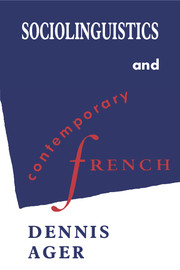Summary
OUTSIDERS are defined for the purposes of this chapter as immigrants and social outcasts, the latter limited to criminals with an identifiable linguistic pattern. France has traditionally welcomed immigrants, whether they are political or economic refugees or simply driven by the desire to settle in an attractive country. As in most European countries, the population of France is racially mixed, and has been for generations: contemporary social statistics showing origin by nationality provide a snapshot of a constantly changing scene. For the purposes of this chapter we consider mainly three settled groups of immigrants - Jews, Gypsies and Armenians - principally because these three have been separately identified in the Giordan report (Giordan 1982).
In discussion of immigrants generally, three recurring themes have linguistic as well as social and personal implications: the constant tension between assimilation/integration to the host society and the maintenance of a separate identity; the inevitable differences between the problems of the original immigrants and those of their descendants of the second and third generations; and the problems associated with culture differences, for example in dress, in religious practices, or in the economic role of women.
Jews
Historical situation
Jews were present in France from the fourth century, and the object of social and religious discrimination from the fifth and sixth, although this did not become severe until the First Crusade in 1095.
- Type
- Chapter
- Information
- Sociolinguistics and Contemporary French , pp. 144 - 162Publisher: Cambridge University PressPrint publication year: 1990



